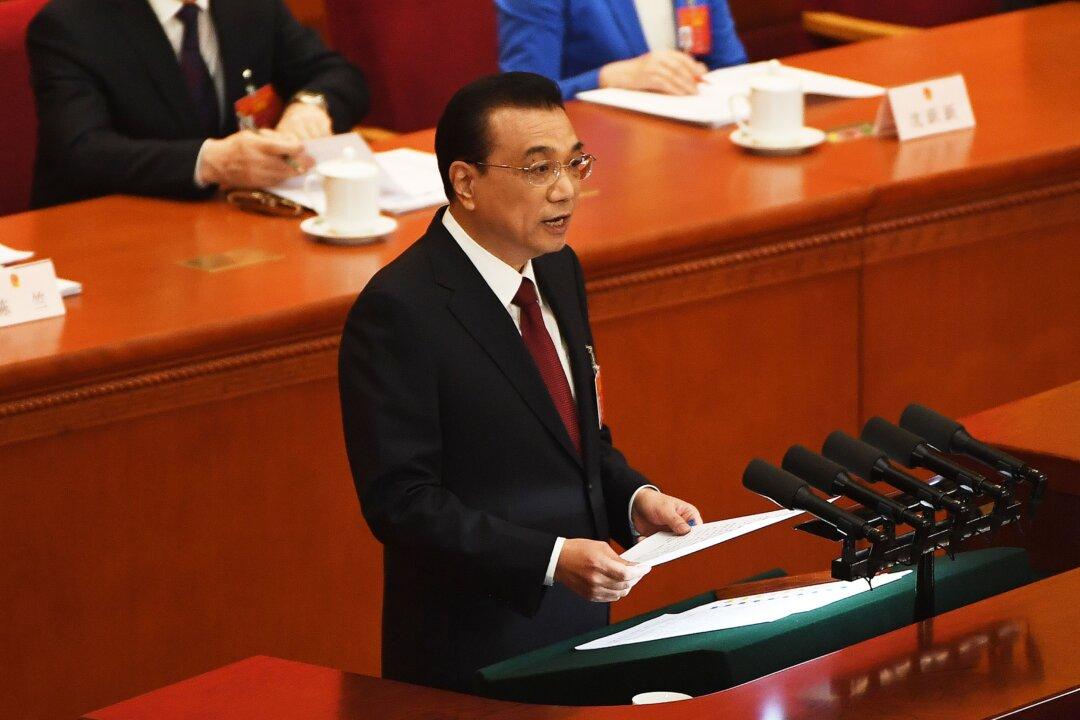When China’s rubber-stamp legislature convened in Beijing this week, Chinese Premier Li Keqiang announced that the Chinese regime would reduce taxes as part of stimulus measures to boost the slowing economy.
Li said on March 5 that there would be planned cuts of almost 2 trillion yuan ($298.3 billion) in taxes and fees for companies.
But experts told The Epoch Times that based on the Chinese regime’s previous behavior, it is more likely that the authorities would not reduce taxes fully and could be expected to add some new taxes.
VAT
Li said value-added taxes (VAT), a consumption tax placed on products whenever value is added at each stage of the supply chain, would be lowered.
For goods made by the manufacturing sector, the VAT will be reduced from the current 16 percent to 13 percent in 2019. For transportation and construction-related products, the VAT will be reduced from 10 percent to 9 percent.
In 2018, Beijing similarly promised to reduce 1.3 trillion yuan ($193.76 billion) in taxes by decreasing the VAT and other taxes, but actually received 9.5 percent more in taxes than in 2017—1.2 trillion yuan ($178.85 billion) more—to reach a total tax revenue of 13.8 trillion yuan ($2.06 trillion).
“The tax in China only can be increased, not decreased,” said Xia Yeliang, a U.S.-based Chinese economist and former professor of economics at Peking University, in an interview with the Chinese-language Epoch Times on March 6.
Xia said that although the VAT was reduced in 2018, new types of taxes and charges were created. For example, in the bustling southern city of Shenzhen in Guangdong Province, the municipal government added 53 types of miscellaneous fees, including a “road occupying fee” for any business that uses roads for more than 30 minutes, and a “road digging and repairing fee” for any construction work that involves digging.
“Chinese people have to feed a huge bureaucratic system,” Xia said. “Feeding the [Chinese Communist] Party and Youth League.”
Xia said the regime is unable to cut or control government expenditures, so the only way to make up the deficit is to increase taxes.
China’s Ministry of Finance published its 2019 budget plan on March 6. It estimated that the total income of the Chinese government will be 19.25 trillion yuan ($2.87 trillion), with total expenditures of 23.52 trillion yuan ($3.51 trillion). The Ministry noted that there would be another 1.5 trillion yuan in government funds that could cover the deficit, meaning the total deficit would be 2.76 trillion yuan ($410 billion), which is 16 percent, or 380 billion yuan ($56.6 billion), higher than in 2018.
Local deficit will contribute 930 billion yuan ($138.6 billion) to the total deficit.





